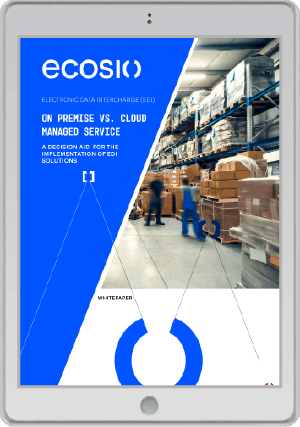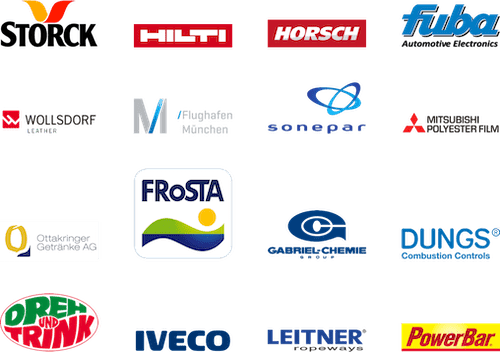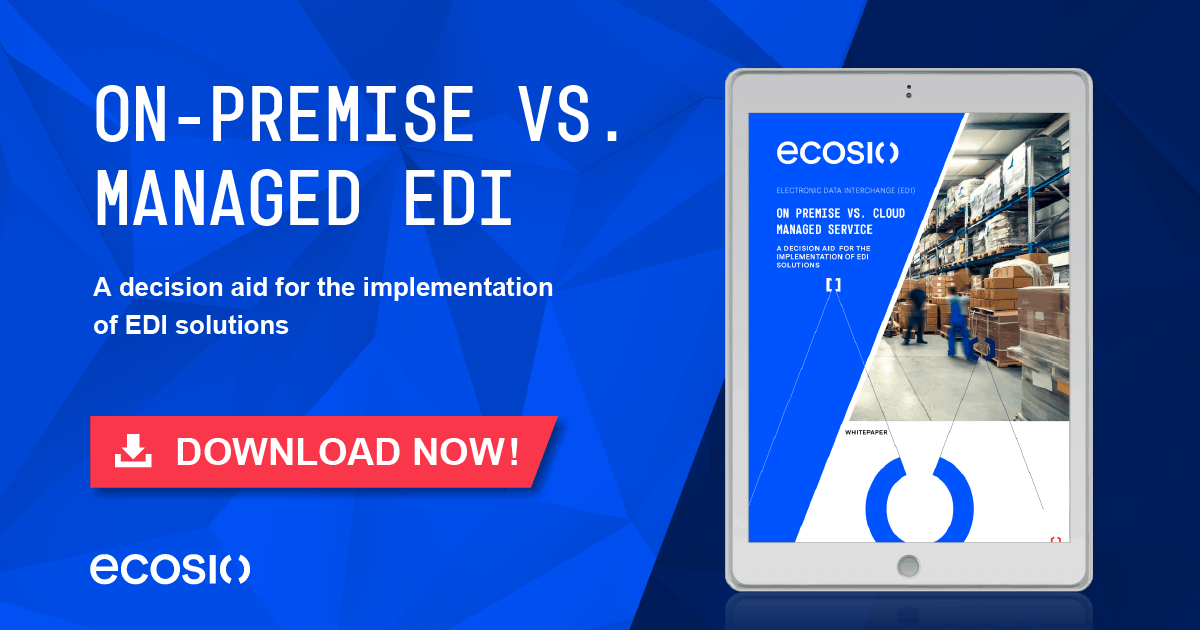"The new onboarding of customers and suppliers is much easier and more effective for me. The monitoring interface is simple and clear to use. And of course the overall costs are better for us now."

EDI can mean a lot of effort...
Electronic data interchange (EDI) has become a critical part of the success of many companies. EDI enables the automated sending and receiving of B2B business documents such as invoices or delivery bills, thus significantly reducing input errors and making communication along the supply chain faster and more cost-effective.
This involves:
- Connection of all partners to the own company by means of EDI protocols for message transmission (onboarding)
- Setting up message conversions for translation between ERP and EDI format (mapping)
- Ensuring the correct transmission of EDI messages (routing & monitoring)
- Rapid correction of transmission errors, e.g. due to incorrect content or delivery problems (error resolution)
The operation of a local EDI converter means that internal teams have to perform all these tasks themselves, which takes a lot of effort. Fully managed EDI removes this burden, allowing internal teams to focus on more value-adding tasks.
NEED HELP MAKING A DECISION?
We offer a range of useful resources for decision-makers and IT managers regarding EDI. Full of helpful graphics and real-world examples, our white papers, webinars and infographics provide you with all the information you need to know to make the right decision for your business!

CHOOSE THE RIGHT EDI SOLUTION FOR YOUR BUSINESS
White Paper
Our white paper “On-Premise vs Cloud Managed Service – A Decision Aid for the Implementation of EDI Solutions” details the differences between these two different approaches to EDI, allowing you to identify which makes the most sense for your business.
- Technical concepts and implementation
- Comparison of costs
- Acquisition and installation
- Operation, monitoring and ERP compatibility

Moving from a local converter to fully managed EDI
On Demand Webinar
Many companies are switching from local EDI converters to fully managed EDI to reduce the workload on internal teams. In our webinar “Moving from a local converter to fully managed EDI” we will show you how to do this.
- EDI Migration to Fully Managed EDI in practice
- Successful project coordination and testing processes
- Choosing the right EDI service provider
- What still matters after the go-live

Future-proof EDI
EDI requirements are constantly changing. As companies grow, the desire to connect to new partners is inevitable. In turn, VAN connections such as X.400 may become necessary, as may the need to connect suppliers without their own EDI infrastructure via Web EDI. Meanwhile, e-invoice requirements in different countries must be also be fulfilled (e.g. XRechnung in Germany or FatturaPA in Italy). Unfortunately, local EDI converters are ill suited to cope with such demands and place a high demand on internal teams.
ecosio takes over and optimises your EDI message exchange, no matter how you currently implement electronic data interchange (if at all). Migration to fully managed EDI is smooth, future-proof and requires minimal internal effort.
ARRANGE A PERSONAL APPOINTMENT
Take your first steps towards seamless B2B integration
Contact us to arrange a personal consultation where we can provide advice based on your individual needs.
